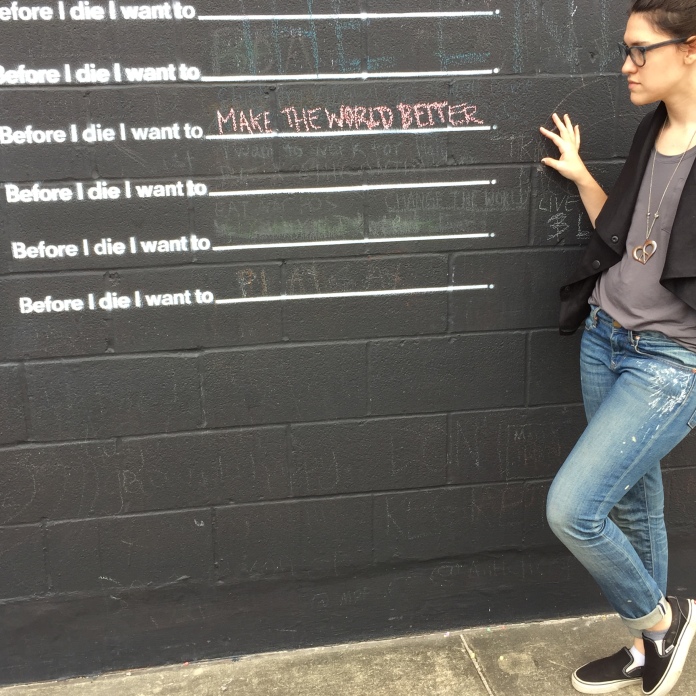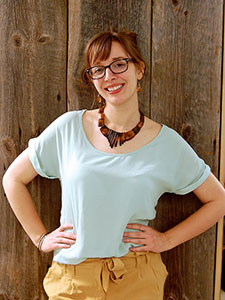
As 2015 comes to a close, I recently took some time to reflect on one of the most momentous years of my life. I started 2015 by moving into my own apartment for the first time. Five months later I moved out, and in the process, started looking for a new job. I quickly realized I had the opportunity that I had always wanted: to start my own company. Since then, my life has been truly focused around IMBY, creating an accessible option for ethically-made fashion.
When I think of 2016, I think of possibility, and uncertainty. If there’s anything I know about being an entrepreneur, it’s that there’s no way to predict the next year, let alone the next month. But I do want to set my intentions for next year. Here are the things, first and foremost as an entrepreneur, I am resolving to in 2016.
- Take care of my mind and body. This was a big focus of my letter to myself when becoming an entrepreneur, and to be honest, I am not doing a great job of it. I will be focusing on making yoga a regular part of my daily routine, and I plan to start 2016 with a Whole30 challenge to recalibrate my deteriorating diet.
- Create a morning ritual. I have been craving stability and routine in my not so stable or routine life as an entrepreneur. One thing that I am confident will help is creating a morning ritual that focuses on starting my day mindfully (not on my phone!) with meditation, yoga, and a healthy meal.
- Practice gratitude. I get a lot of help and support from wonderful friends and colleagues, and without them, I couldn’t get IMBY off the ground. I want to practice gratitude towards the people who support me beyond just saying thank you. This includes a regular thank you note practice, as well as being grateful of the things that others might not realize are a big deal, but make a big difference to me.
- Go big. 2016 will be a big year for IMBY— the company will hopefully grow a lot. This will require the majority of my energy and time for 2016, and I am ready to focus on bringing ethical fashion to the masses. This will require sacrifice including less time with friends, challenging decisions, successes and failures. I plan to embrace it all (and I have my own set of goals for IMBY’s growth in 2016!).
- Build community. Being an entrepreneur is incredibly lonely. I knew this fact from my time at PresenTense helping entrepreneurs start up, but it feels so heavy building a company alone. I plan to focus 2016 in building my own community of individuals I can support and who can support me. I am starting entrepreneur brain slams so that my friends and I can support each other in brainstorming new ideas when there is not normally someone around to share those ideas with.
Speaking of community, I recently joined the Ethical Writers Coalition, a group of bloggers focused on living more sustainable lives and helping others do so as well (some of them have been my favorite blogs on the topic for a while now!). We have all committed to posting our resolutions today. You can check out the other truly inspirational posts below– and check out their blogs for some great resources! What do you resolve to focus on in 2016?
Hanna of Sotela’s Why Making Unresolutions Are Better
Alden of Ecocult’s Painfully Honest New Years Resolution
Leah of Stylewise Blog’s Year in Review and Ethical Resolutions
Hannah of Life + Style + Justice Blog’s Resolutions
Kasi of The Peahen Blog’s A Year of Wardrobe Resolutions
Elizabeth of The Notepasser Blog’s My One Big Resolution for 2016
Faye of Sustaining Life’s Shedding Layers for a Mindful 2016
Annie’s My 2016 New Year’s Resolution: Buy Only Ethically Made Fashion
Kamea of Kamea’s World’s 4 New Year’s Resolutions You Need for a Meaningful 2016
Holly of Leotie Lovely’s Gone Green 2016
Andrea of Ecologique Fashion’s Resolutions


